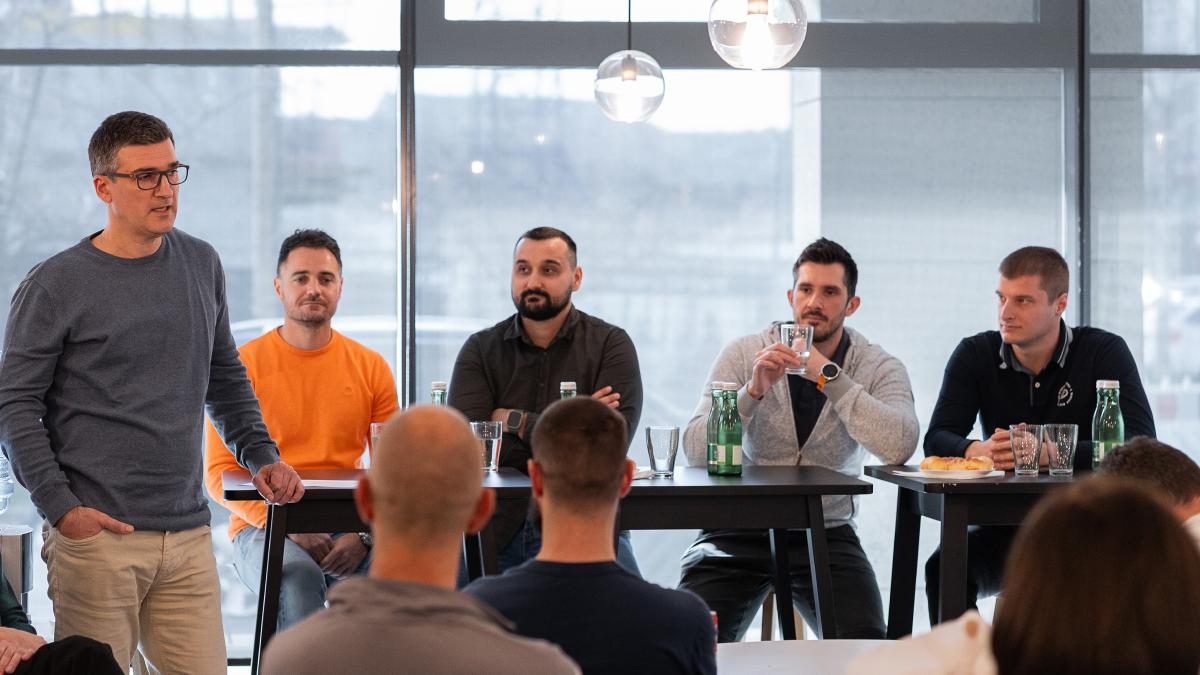- The cost of achieving net zero is estimated at between 0.5% and 0.6% of GDP through to 2050, in the UK, with investment growing from £10bn in 2020 to £50bn in 2050
- From 1990 to 2022 UK emissions dropped by 53 %. The target by 2030 is a further 43 % fall in emissions
- Emissions rose 4% in 2021 compared to 2020 as economy recovers from Covid-19
- In order to meet Net Zero expectations, Capital spending on physical assets for energy and land use systems is estimated to be c.$275bn cumulative, or $9bn p.a.; equivalent to c 50% of global corporate profits, 25% of total tax revenue, 7% of consumer spending
(Sources: 1. 2021 UK Government Net Zero Strategy – Build Back Greener, 2. 2022 Climate Change Committee Progress Report to Parliament, 3. 2022 McKinsey Global Institute the Net Zero Transition)
We are at a critical point in correcting climate change issues if we are to achieve Net Zero by 2050 and limit global warming to 1.5°C, as agreed in Paris Accord in 2015. To put it in perspective UK emissions fell by 53% in the 32 years to 2022, but now need to fall be 43% in only 8 years to 2030. It’s going to be hard, and the challenge should not be underestimated. Government, corporates, consumers and other players will all need to be bolder. Change needs to be accelerated. The climate change issue needs to be top of the agenda.
This was the topic at the recent “Accelerating Net Zero” event organized by HTEC Group and our partner Vitol, a leader in the energy sector. HTEC is working with Vitol to develop an e-mobility business, specifically around standing up an electric charge point business to support Commercial organization with large van, truck, and taxi fleets. The event gathered Business and Technology leaders from a variety of large corporates, financial institutions and public policy makers to align around net zero and discuss challenges and solutions needed to meet the deadline.

The key challenge is not whether to go for net zero by 2025 but how? The economic situation – emerging from the Covid 19 pandemic, the UK cost of living crisis, the impact of the Russia/Ukraine conflict, rising fuel and food prices, the low value of sterling against the dollar – means that climate change is not the only challenge to be addressed and complicates the Net Zero imperative. So how are companies going to deliver against their Net Zero objectives? That is what the event aimed to understand more about. Do companies intend to change their business models, embrace new technologies, or embed sustainability into their operations. Which way will they go to unlock value and make a transition to a green economy? And how fast are they prepared to go?
We caught up with Larry Zentner, Managing Director, UK, HTEC Group, to talk to him about the event, collaboration between HTEC and Vitol and lessons learned from the event.
H: Who organized the event?
L: “The event was sponsored by HTEC and Vitol together. We have been working for the last six months to build an electric charge point business to help large businesses electrify their fleets of vans and trucks. This part of the e-mobility market is still very new, market penetration is maybe 1% or 2%. There is huge potential. Larger commercial vehicles are more complicated than cars for a variety of reason: battery size, electricity consumption, routes, fleet size and variety, time requirements, depot restrictions, power management, and much more. And that is what Vitol and HTEC are trying to solve. We started from a blank sheet of paper on the 1st of January this year and started by helping Vitol to understand the parameters of the business they wanted to build, the costs of creating that business, and the critical steps they would need to take along the way. It’s a very ambitious objective of Vitol, to build a market leading business from scratch. Vitol describe HTEC as a ‘software powerhouse’ and they trusted us to help them on their journey.”
H: What were the relevant issues and areas covered at the event?
L: “We discussed vehicle fleet electrification, supply chain optimization, changing consumer behaviours, ESG supplier screening and traceability, partnership with eco NGOs and think tanks and universities, renewable energy sources, waste and recycling, energy efficiency, ethical investment, digitization, supporting customers and suppliers within the supply chain.” These are all different ways that Net Zero can be achieved, and each company had its own unique focus and relative priorities for each of these areas.
H: How is HTEC contributing to Net Zero?
L: “We have a long-standing history of helping clients achieve sustainability goals. From delivering impact in the life cycle of large-scale solar plants to helping maritime companies operate their fleets more sustainably, HTEC has a deep domain experience and expertise in building green solutions that will contribute to greener future and enable companies win this net zero race. Each time we help a client develop systems that improve yield or enhance operations, we are contributing to the Net Zero challenge. “
H: Which companies attended the event?
L: “A diverse mix of people from the energy industry, from offices and refurbishments, retail estates, finance and investment, consulting, insurance, research houses, manufacturing, public policy gathered to discuss and share the commonality and the divergence and gain a common energy and desire around Net Zero. There were 21 CEOS, CTOs, and other business leaders from organisations including Advanced Propulsion Center (APC), Aura Futures, Cloud NC, CRSI, Eon, Ernst & Young, Fabian Women’s Network, HTEC Group, Vitol, Johnson Matthey, Lease Plan, LV, McLaren, Ocado, Peel Hunt, Vantage Healthcare, and West Hill Capital.” Many of the guests are current clients or target clients.
H: What are the lessons learned?
L: “One of the lessons from the event is that businesses’ efforts need to be accelerated at a much higher degree. We need to create 43% reduction by 2030 which is only eight years away. In other words, we must achieve in 8 years what we have achieved in 32 years. We can already see some big improvements, but there is still much to be done. It is a really tough challenge, much tougher than people are giving a credit for. The second lesson is that this responsibility falls on everybody, on consumers, produces of energy, renewable industry, mobility. But leaders have the dominant responsibility – although they have made their commitments to Net Zero, they have not possibly understood that they must lead the way and go faster than everybody else. The sense of urgency is the biggest insight from the event as well as having to think very creatively about how to go about it. It is not just about carrying on, we need to start taking real action. We must be innovative and use a combination of smart business models and new technologies as well as ways of optimizing businesses in a much more radical way than we have done it so far.”
H: Are companies on the right track to reach net zero by 2050?
L: “Not exactly. If you look at their annual statements, you will see that every major company has a statement to commitment to net zero. But if you scratch below the surface, you’ll find that they things are not exactly as they seem to be. I think a lot of people are behind the curve.”
H: What are the biggest concerns companies need to face on their journey to Net Zero?
L: “I would say there are two biggest concerns. One, different companies face slightly different challenges depending on the industry they are operating in. In transport mobility, it’s around electrification of vehicles. If you’re in buildings, it’s around smart buildings and better use of energy. The second biggest concern is the timing — the speed at which companies must achieve this goal. But, overall, it is imperative companies change their business models to be able to succeed in this net zero race. They have to stop doing the things that are creating an energy consumption needlessly and start doing things that are more efficient in nature.”
H: What are the next steps?
L: “It is an imperative that we continue conversation, collaboration and commitments to do things together in future. To be able to achieve net zero, companies need to change their workflows and demonstrate what they are doing through data flows. Technology is a part of the solution here. Companies need to leverage technology to both deliver, demonstrate and prove net zero so they can attract better profits, better margins, better valuations and generate high returns. But the race to net zero is a team pursuit. Companies need to look for change-makers, and status-quo shakers who will help them achieve the speed and scale required and, in our CEO’s words, engineer a better future. With strong capability to solve complexities of today and tomorrow, HTEC is on the right track to help companies meet the net zero target with bold action and no delay. I am really excited about being part of the answer, helping the world to move forwards.“
—
To learn more about how we help our clients achieve success on their net zero journey, go to our services page or reach out to one of our experts.
In the meantime, read our latest blog Race to Zero: Are companies on Track to Get Net Zero before 2050?






